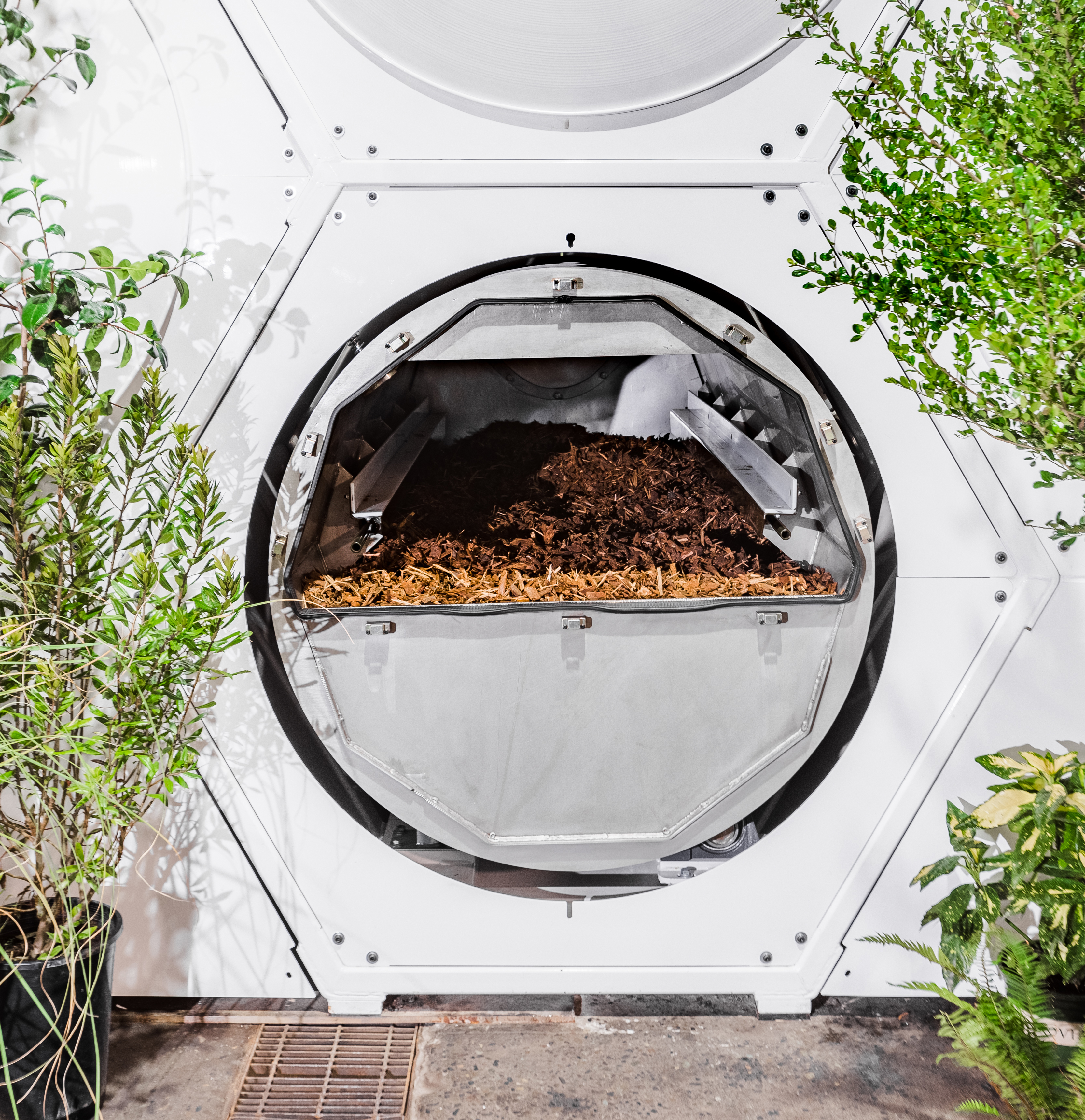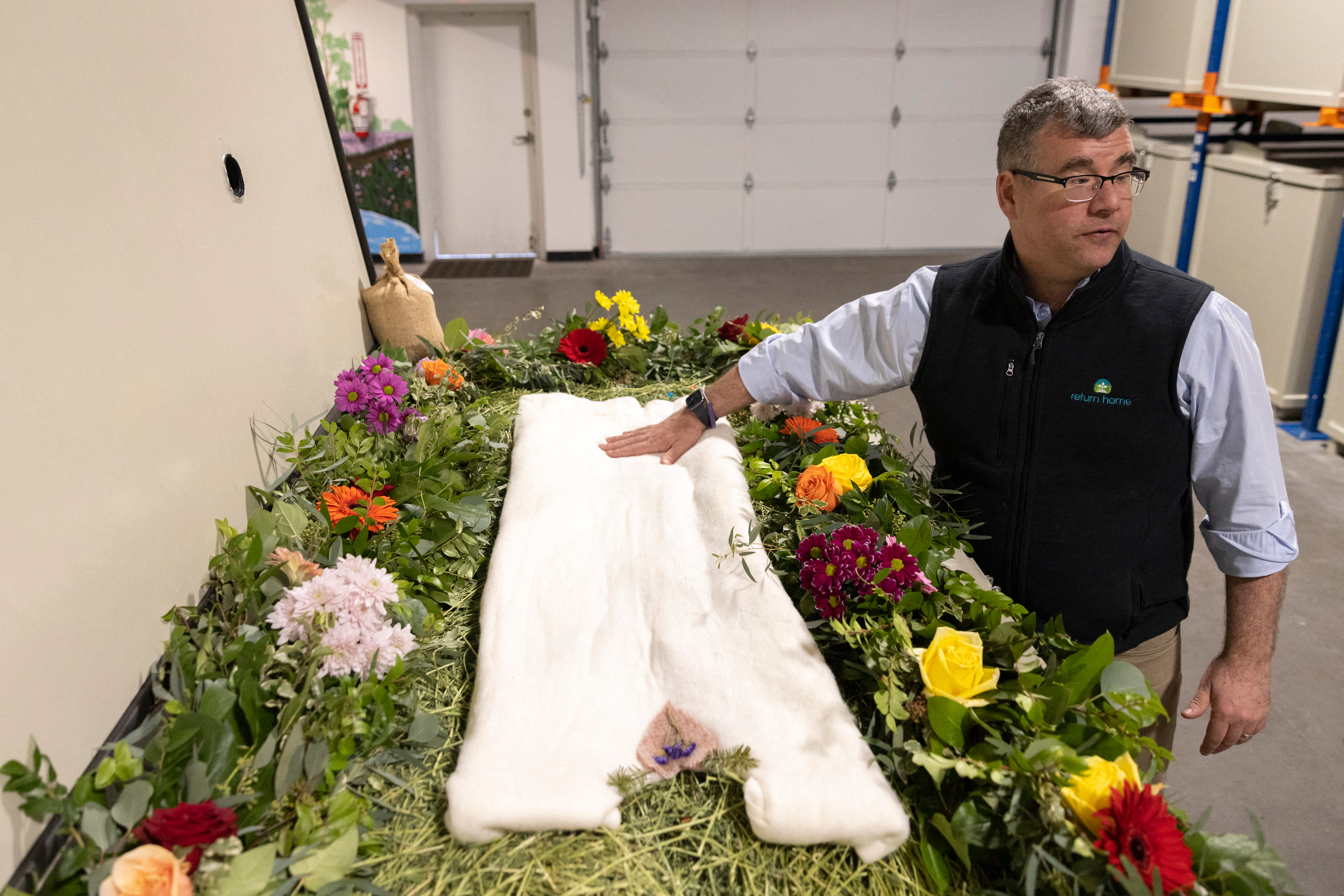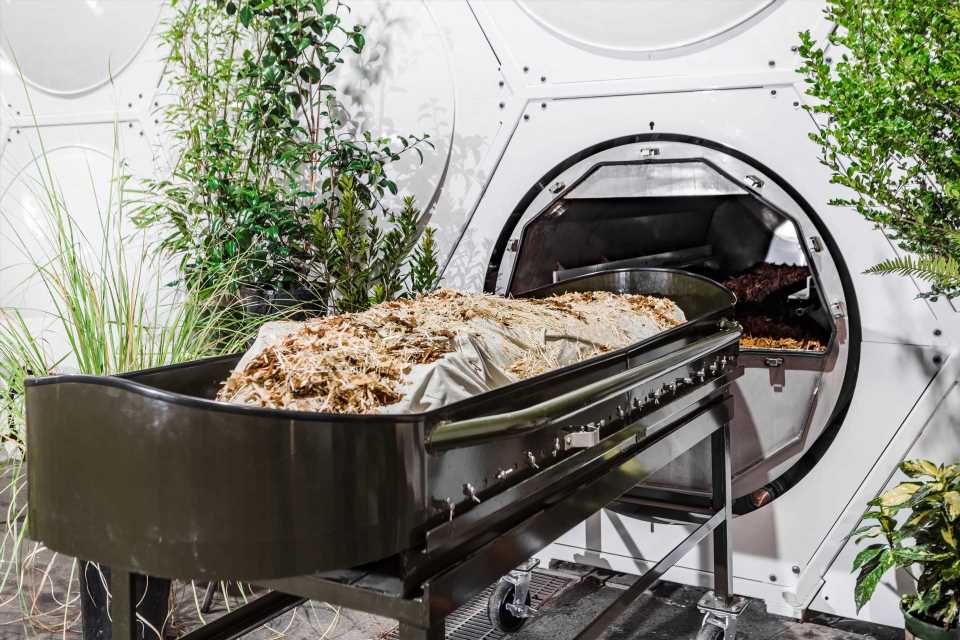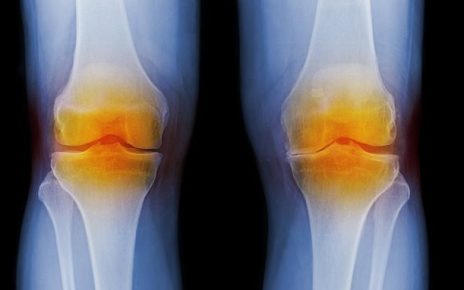Would you rather be buried or cremated when you die?
If you feel the way I do, the answer is neither. I cringe at the thought of my body burning up at well over 1,000 degrees Fahrenheit or being pumped full of toxic chemicals and spending the rest of eternity in a cramped box 6 feet underground.
So here’s another question: How do you feel about having your body reduced to compost and used to plant a tree, grow flowers, or repair depleted soil in a forest?
Human composting doesn’t mean you’re tossed into a bin with potato peels, crushed eggshells, and coffee grounds. Rather, you’d be placed in a metal or wooden vessel, enveloped by organic materials such as wood chips, alfalfa, and straw, and then slowly reduced to a nutrient-packed soil. The process can take six weeks to six months depending on the methods used.
I don’t know about you, but I like the sound of that (at least compared with those other two options).
“I never felt like I had an option that works for me until now,” says Assembly member Cristina Garcia (D-Bell Gardens). She authored a bill, signed last month by Gov. Gavin Newsom, to legalize human composting in California.
California becomes the fifth state to allow this method of body disposal, commonly known by the more scientific-sounding name “natural organic reduction.” Colorado, Oregon, Vermont, and Washington have legalized the practice, and legislation is pending in several other states.
Email Sign-Up
Subscribe to KHN's free Morning Briefing.
The California law takes effect in 2027, allowing time for regulators to establish the rules that will govern human composting in the state.
But it’s never too early to start planning for your death.
Heather Andersen, a 68-year-old consultant and former hospice nurse in Seattle, says she has already chosen to be composted when she dies because it is much easier on the environment than burial or cremation.
“We’re actually enhancing the Earth rather than taking away from it,” she says. And there’s a spiritual dimension to her decision, she says, since she’ll be “going back to being part of the whole cycle of life.”
Andersen, who is in good health, purchased a prepaid composting plan from Recompose, a Seattle-based green funeral home whose founder, Katrina Spade, is widely viewed as a pioneer of natural organic reduction for humans.

One naturally reduced human body can yield anywhere from 250 to 1,000 pounds of soil depending on the method used and the type and volume of organic materials mixed with the body. That’s enough to fill several wheelbarrows or the bed of a pickup. Once the process is complete, many families take a small box of the soil and donate the rest to conservation projects or flower farms.
Of course, being composted after death is not for everybody. For example, the California Catholic Conference objects to the new law. The methods involved, it said in a statement, “reduce the human body to a disposable commodity, and we should instead seek options that uphold respect for both our natural world and the dignity of the deceased person.”
Those who have chosen to have their bodies composted are generally motivated by ecological concerns.
With natural organic reduction, ”what we are in fact doing is taking everything that continues to be alive in a human body after the human being leaves it and turning it into something that can actually nurture the planet,” says Holly Blue Hawkins, of Santa Cruz County, whose Last Respects Consulting offers death planning services.
After death, the human body retains numerous elements and minerals that are nourishing to plants, including carbon, calcium, magnesium, nitrogen, and phosphorus.
Traditional burials pose many problems. The formaldehyde in embalming fluid puts funeral workers at risk for problems such as an irregular heartbeat, a dangerous buildup of fluid in the lungs, and, over time, cancer. Moreover, the toxic substances in embalming fluid can leach into the soil.
Not to mention that there just isn’t enough land in cemeteries for everyone to have their own plot indefinitely into the future.
Cremation, on the other hand, emits numerous pollutants that are harmful to humans, as well as millions of tons of carbon dioxide every year. And the percentage of people choosing cremation is growing fast, primarily because it is cheaper than a burial. Cremation is projected to account for 59% of body disposals this year and 79% by 2040, according to the National Funeral Directors Association. With about 3 million Americans dying each year, that’s a lot of bodies burning up.
Human composting has emerged only recently as an alternative to burial and cremation.
Since Recompose opened in December 2020, the company has composted fewer than 200 bodies. “Obviously, that’s a tiny fraction of the people who die in Washington state,” Spade says. But 1,200 customers have prepaid for natural organic reduction, which she believes is a sign of its growing appeal.
Many funeral entrepreneurs view human composting as a significant business opportunity in a $20 billion industry.
“Our owners have been holding discussions about expanding across the country as more states legalize it,” says David Heckel, advance planning consultant at The Natural Funeral in Lafayette, Colorado.

Return Home, a green funeral home in Auburn, Washington, encourages website visitors to “join the #idratherbecompost movement” and fill out a form letter urging their state legislators to legalize human composting.
Dying isn’t cheap, and composting is no exception. The cost of natural organic reduction ranges from $3,000 to just under $8,000, depending on which company you choose. The companies typically offer on-site ceremonies for an extra charge. That compares with an average funeral cost of just under $7,000 for a cremation and just over $9,400 for a traditional burial with a casket and vault.
Recompose, Return Home, The Natural Funeral, and Earth Funeral, of Auburn, Washington, all say they plan to set up shop in California after the new law takes effect. But Californians who want to return to the Earth as compost don’t have to wait until 2027.
All those companies offer prepaid plans and will arrange transport to their facilities out of state, for an extra fee, if you or your loved one dies before they are up and running in California — or if you live in a state where natural organic reduction is not legal. They will typically mail you or your family a small box of the resulting compost.
Another option is Herland Forest, a nonprofit cemetery in rural Washington, which charges $3,000. It has no plans for expanding to California but accepts bodies from other states with an extra fee for transport.
Call around and compare prices and methods. See what kind of vibe you get.
If the idea of human composting leaves you cold, whether for religious, personal, or family reasons, don’t worry. No one is forcing you to nourish a tree. “I’m not taking anything away,” Garcia says. “I’m just expanding the options that we have.”
This story was produced by KHN, which publishes California Healthline, an editorially independent service of the California Health Care Foundation.
Source: Read Full Article



